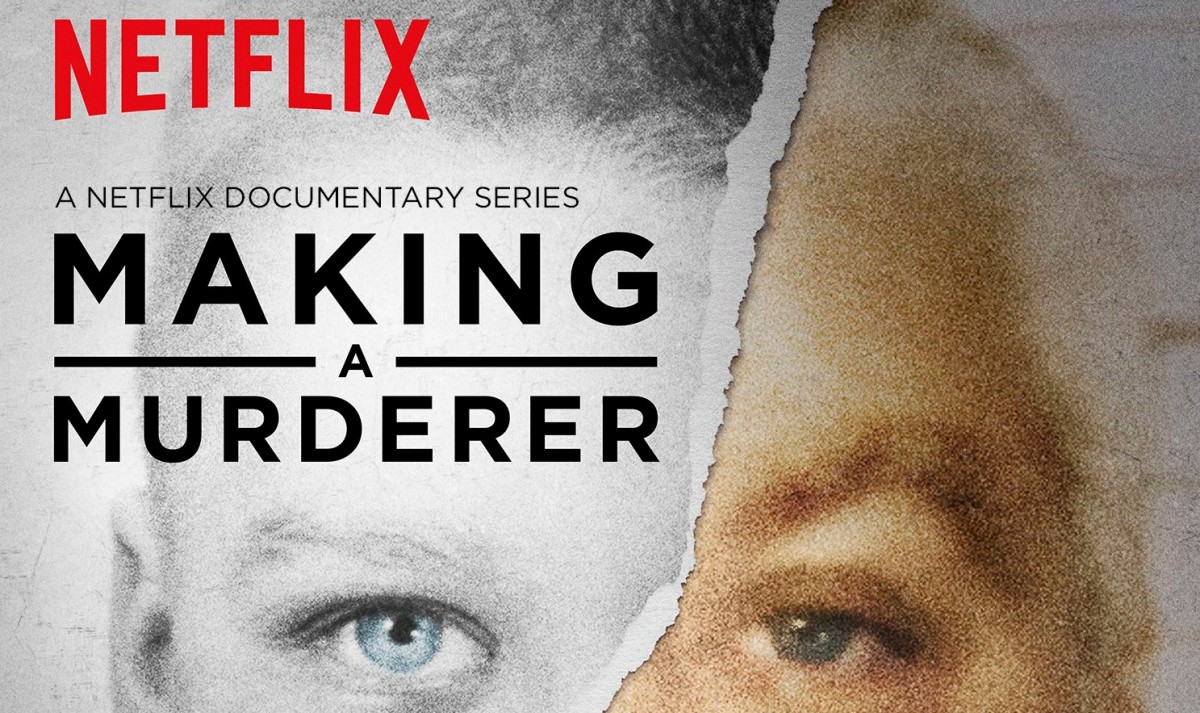Why We Need to Talk About Making a Murderer
 The other night I stayed up late to finish watching the Netflix phenomenon, Making a Murderer. It was after 11:30 PM but I pulled myself out of bed and started a hot shower, compelled to literally wash off the sadness, disgust and disappointment that covered me after watching all ten episodes in three days.
SPOILER ALERT
The other night I stayed up late to finish watching the Netflix phenomenon, Making a Murderer. It was after 11:30 PM but I pulled myself out of bed and started a hot shower, compelled to literally wash off the sadness, disgust and disappointment that covered me after watching all ten episodes in three days.
SPOILER ALERT
I’m diving in deep so stop yourself now if you plan to watch it and process your emotions unfettered. The documentary series, if you haven’t figured it out yet, chronicles the Avery family in the small town of Manitowoc, Wisconsin over the span of 30 plus years. In a nutshell, Steven Avery is wrongly convicted of a sexual assault in 1985, and kept in prison for 18 years until he could prove his innocence with DNA evidence. This incident prompted a special task force by the Wisconsin Department of Justice to look into Manitowoc County Sheriff's officials and prosecutors involved in securing Avery's wrongful conviction. Nothing was found. New legislation was proposed and finally, a $36M lawsuit from Steven against Manitowoc County.
News Flash: Don’t piss off Manitowoc County. Because (it appears) that what the Sherriff’s Department does next, in handling the disappearance of a local woman, is truly criminal*. The filmmakers behind Making a Murder outline a story that you may be familiar with (wrongly accused, crooked cops, biased defense), but they do so in a way that makes you finally comprehend the ease in which injustice occurs in our judicial system. The series carefully unpacks a framework of corruption, collusion, fear and sheer idiocy that allowed Steven Avery to be found guilty a second time, this time of murder. You realize this can (and does) happen in our country, and that race and class are obviously factors.
As much as it was painful, watching Making a Murder was fully engaging. I found myself (like many others, I’ve read) yelling at the TV, cursing the smug prosecution team, and eventually, shedding tears. The morning after watching the series finale I tried to express to my colleagues what exactly hit me so hard. Here’s how it breaks down:
-
This story taps directly into a deep fear I hold as a mother, that my sons will stand falsely accused of a sexual assault.
-
It is clear that our judicial system relies on the collective integrity, intelligence and compassion of all participants in a given case and that is clearly too high an expectation for us all to uphold.
-
The assumption of innocence is necessary for our system to work, but it’s like a millennial resume—looks good on paper, but is kind of a stretch if we’re really being honest with ourselves.
THE VULNERABILITY OF MOTHERHOOD
First, I feel enormous empathy for Dolores, Steven’s Mom. This whole Avery issue taps one of my core fears: that one of my sons will be wrongly accused of a sexual assault. The past few years have brought an incredible amount of awareness to the occurrence and prevention of campus sexual assaults and an increasing awareness of how to raise boys.
As an early 90s Women (Gender) Studies major and former undergrad resident advisor, I’m well acquainted with the issues, and value the open discussion and education. The waters of sex and communication combined with drugs and alcohol are murky at best. I get it. I was there once too. But it feels like everything right now is so much more fragile, so tenuous.
Raising young men in a time where we are trying desperately to get rid of the grey area, I have begun to harbor a fear that they will get mixed up in a bad situation, and be wrongly accused. To be clear, I know that thousands of assaults are never accounted for, and their perpetrators never punished, let alone accused. This too is tragic. It doesn’t matter that I think my sweet boys would be incapable of something like this (God forbid, we try our best as parents) but truly, it appears that ACCUSATION IS DAMAGE ENOUGH.
Finally, let’s not forget about Brendan Dassey. Watching those brutal interrogation scenes, which were without question a sick form of psychological abuse, had me in tears and left me angry and disgusted. It was not just one detective who abused his power, using totally inappropriate techniques, but it seemed every single person in this case —from his court appointed attorney, to his defense investigator, to the detectives, to the prosecutor—was shady, unethical and vile. I feel for Brendan’s mother—razed by the system and robbed of her 16 year old son. Absolutely heartbreaking.
LIBERTY + JUSTICE FOR ALL
My second major takeaway: our judicial system relies on the collective integrity, intelligence and compassion of all participants in a given case is clearly too high an expectation for our country to consistently uphold. In the Avery case(s) we see countless instances of corruption, collusion and stupidity. But really, it wouldn’t take more than just ONE person to destroy the values we suggest to hold so dearly.
Seven of the jurors thought Steven Avery was innocent, prior to the final conviction? I have to believe that either the jury truly did not understand their directive, which is another system fail, or again, there was corruption. How many times have you boasted that you “got out of jury duty”? WHO DO YOU THINK IS LEFT SITTING ON THAT BENCH?
What group of people would you want judging your son or daughter, or you, should you be in such a horrible position? I doubt I would be judged by a jury of my peers, since most of us never volunteer to serve. I get that we’re busy, that we don’t get paid for it, and it’s a total drag. But serving on a jury is not only one of our highest privileges (part of both the Constitution and the Bill of Rights), but it’s critical to the democratic process.
Making a Murderer brings to question false confessions, plea bargains and other ways in which our judicial process promotes falsely admitting guilt to evade deeper, possibly unjust punishment. What our system doesn’t seem to value or promote is seeking truth.
PRESUMED INNOCENT GUILTY
Finally, let’s not forget that the presumption of innocence went out the window in this case. Throughout the Avery story, the assumption of guilt led the majority of decisions. How many times have we seen this scenario played out? Every night on the news it seems. We don’t like the color of that person’s skin? We don’t believe in their god? Well, they must be guilty of this crime. We jump to guilty. We assume. We accuse. We judge. We do this everyday, whether we’re on a jury or not.
Forget evidence, ignore civil liberties. Most often we see this as racial bias, but for the Avery family, there was a clear and consistent class bias. In the global Rule of Law Index based on an annual survey by the World Justice Project, the U.S. consistently ranks low among wealthy, developed countries (currently 19th). According to the Chief Research Officer, this is primarily due to unequal access to justice based on race and class. The divide is great, and the result is unfair.
If liberty and justice are staunch values of our country, yet we cannot consistently uphold these core tenets, then what DO we stand for? How will we make systemic change, with issues that are embedded so deeply in our culture and our psyche?
Ugh.
Let’s close this heavy essay by acknowledging that over the past few days we all went back to work and school, Mercury was in retrograde, and San Diego suffered balls out extreme weather thanks to El Nino.
Hug someone and stay warm, okay?
xoxo
*
I extend heartfelt sympathy for the original victims of the crimes represented in Making a Murderer. More than anything, they too experienced a grave injustice, by not receiving the thorough investigative attention they deserved.
